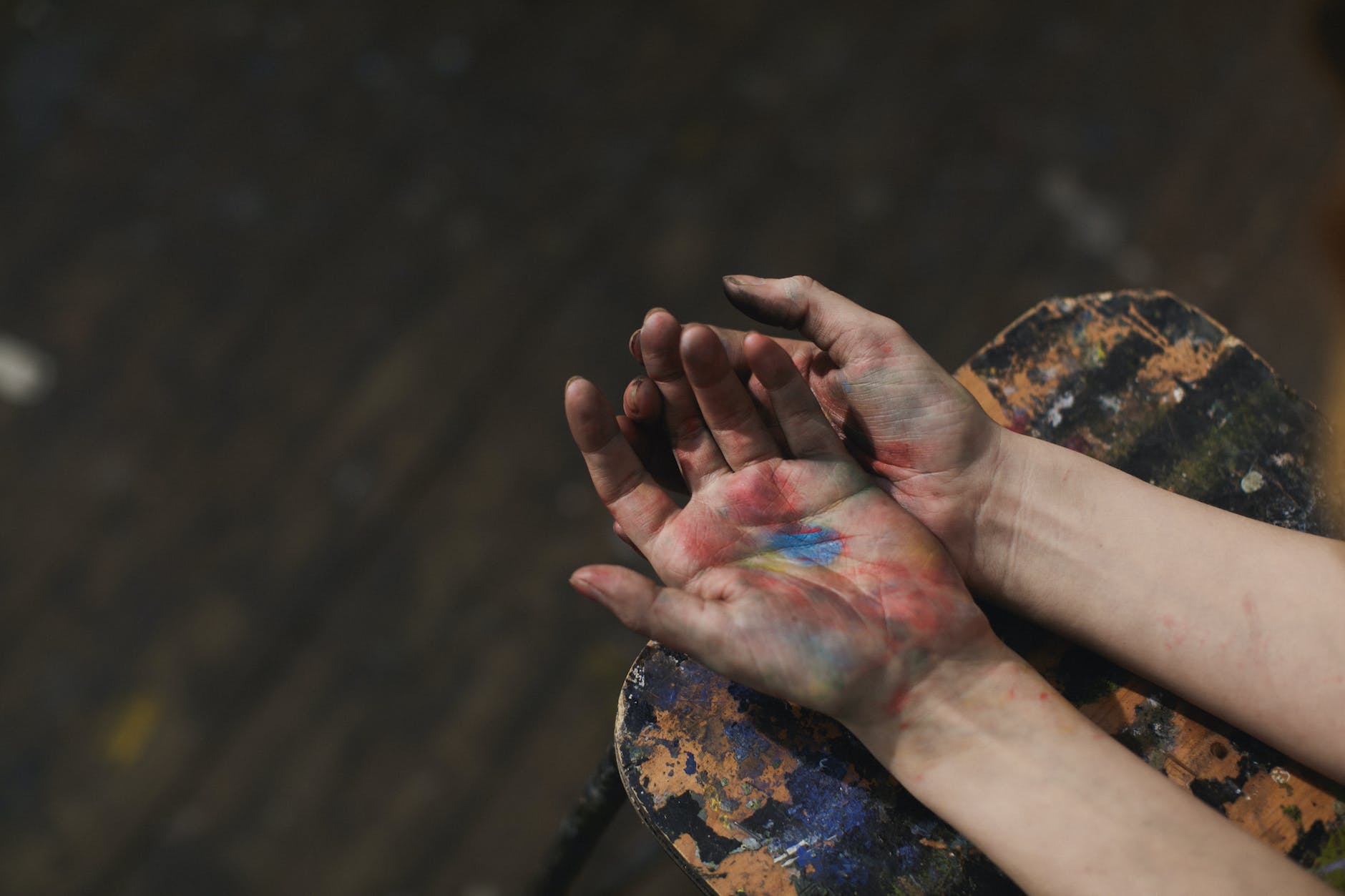This reflection was originally posted on That Reformed Blog in 2015.
Last year as my husband and I were gathering our things following the Ash Wednesday service, my daughter tugged on my shirt.
“Momma, will you put one on my head and say the words?”
She pointed to where the ashes were kept.
“Sure, sweetie.”
I knelt down in front of her, dragged the tip of my finger through the ashes, and then looked up at her. My hands started trembling, which caught me by surprise. My mouth was dry, and it was like the words were caught in my throat.
“Remember you are dust…”
No. It seemed wrong. My five-year-old, full of spunk and life and zest, with the hope of years to come and so many dreams to reach for.
Dust.
The ashes were like a burden I was placing on her forehead. I marked the sign of the cross on her, and I said the words, but I felt myself racing to get to the promise at the very end.
“Remember you are dust, and to dust you shall return, but the steadfast love of the Lord endures forever.”
She looked at me with big, wide eyes like she was trying to understand, and then she raced off to find her brother. I could hear her squealing and showing off her ashes to him, and he was impressed. But, that moment of placing the ashes on her forehead stayed with me.
I looked down at my hands, and they were dirty.
I thought back to the service that had just ended and to others I had participated in, and I remembered placing the ashes on each person’s forehead who had come forward. I knew almost every person who had come. I knew their stories. I knew many of the losses they had suffered, the joys they had celebrated. I looked into each person’s eyes, and saw hurts and joys and wonderings and questions.
After everyone had come forward, I turned and received a cross of ashes on my forehead, too. All of us were on a journey together, wandering, stumbling, seeking, glimpsing.
I looked down at my hands, and they were dirty.
The ash and oil mixed together and seemed almost to seep inside my skin. I wiped at it with a cloth so that I could continue on with the service, but I couldn’t wash it all away.
“Remember you are dust…”
“…then the Lord God formed man from the dust of the ground, and breathed into his nostrils the breath of life; and the man became a living being.” – Genesis 2:7
Formed from the dust. The God of creation drew near, and formed humanity from the dust. From the grit and the soil and the perishable, the Imperishable God created us.
“And the Word became flesh and lived among us…” – John 1:14a
We were created from the dust, but that was not enough. God entered into our midst, and became one of us – one made from the dust – because God is not afraid to enter in and get hands dirty.
And as we gather together and embark upon the journey of Lent, we are following in the footsteps of the one who made mud with his hands to bring restoration of sight (John 9:6), the one who wrote with his finger in the dirt (John 8:8), the one who ate with the outcasts (Matthew 9:11, and elsewhere), and wept over the loss of his friend (John 11:35).
Ash Wednesday’s earthiness is no accident. It draws us back to the creation of the world and of humanity. It grips us as we recall our own mortality. And it invites us to enter into the places in our lives where we need to get our hands dirty.
For a fleeting moment, we will be able to look around and see everyone marked with ashes – indicative of the burden we bear as humanity – but also marked with a cross as a reminder of our deepest and truest selves.
Lent is an inner journey that extends beyond ourselves.
We are following in the footsteps of one who got his hands dirty, who reached out and touched those who needed it most, ate with those deemed unworthy by society, and had no place to lay his head.
Lent is an imperative to go and do likewise.

